Electric Boogaloo
Titre original : Electric Boogaloo: The Wild, Untold Story of Cannon Films
NOTE IMDb
7,4/10
6,3 k
MA NOTE
Ajouter une intrigue dans votre langueThe history of the independent film company, The Cannon Film Group, Inc.The history of the independent film company, The Cannon Film Group, Inc.The history of the independent film company, The Cannon Film Group, Inc.
Menahem Golan
- Self - Cannon Chairman
- (images d'archives)
Itzik Kol
- Self - Production Executive
- (images d'archives)
Roni Ya'ackov
- Self - Production Executive
- (as Rony Yakov)
Yftach Katzur
- Self - Actor
- (as Yiftach Katzur)
Avis à la une
I remember pretty clearly the Cannon Films logo and its distinctive loud crashing sound accompaniment that introduced so many films I watched on video in my teenage years in the 80's. I never really thought too much about it until now, having seen this wildly entertaining documentary about these B movie mavericks. A few years ago I saw another similarly fun documentary about specific genre films, Machete Maidens Unleashed, a film also helmed by the same director Mark Hartley. Well, he sure has a knack for these things because this one follows a pretty similar template where we get to hear anecdotes from a large selection of people who were involved in the making of these flicks and, better still, many clips from a wide ranging assortment of the crazy, fun and stupid movies that Cannon became famous for. They were run by two Israelis Menahem Golan and Yoram Globus (neither of whom appeared in the documentary deciding in true Cannon style to make their own documentary on the subject simultaneously).
Their main decade was the 80's where they unleashed a huge number of low budget movies from horror to sexploitation to action and dance movies plus a whole lot in between. They were mainly known to be purveyors of schlock entertainment and with good reason as, despite releasing some acclaimed films and working with some important directors such as John Cassavetes and Jean Luc Godard, they were in the main responsible for straight-ahead genre pictures. Their films have a refreshing absence of any political correctness whatsoever and often feature copious amounts of nudity and violence, quite often at the same time as in the case of some notorious films in their catalogue such as Death Wish II (1982). Other times they featured laughably bad special effects like can be seen in Hercules (1983), some were blatant bandwagon jumpers like the hip hop dance film Breakin' (1984), they also released the notoriously sexy Bo Derek vehicle Bolero (1984) which so outraged MGM who had set up a distribution deal with them, they released the very silly sequel The Texas Chainsaw Massacre 2 (1986), while some of their output simply defies description like the extremely strange and silly musical The Apple (1980). They made many Charles Bronson and Chuck Norris vehicles; they discovered Jean Claude Van Damme and Dolph Lundgren and gave a platform for cult directors like Tobe Hooper to make movies. Things only started to go wrong in 1987 when they began to over-reach themselves and spent multi-millions on three box office disasters - the Sylvester Stallone film Over the Top which was about...arm wrestling; the superhero movie Superman IV: The Quest for Peace which was very expensive for them but not expensive enough to execute good enough special effects resulting in a laughable film; and finally Masters of the Universe, a film based on the popular 80's toys. So there is a dramatic story arc to this, which helps it function as a narrative but in the main it works so well simply because it is chock-full of entertaining clips from an array of movies and has some funny observations from the people involved. For any B movie lover this really is a must. And what's more, you are guaranteed to be led to seek out a few new flicks off the back of it.
Their main decade was the 80's where they unleashed a huge number of low budget movies from horror to sexploitation to action and dance movies plus a whole lot in between. They were mainly known to be purveyors of schlock entertainment and with good reason as, despite releasing some acclaimed films and working with some important directors such as John Cassavetes and Jean Luc Godard, they were in the main responsible for straight-ahead genre pictures. Their films have a refreshing absence of any political correctness whatsoever and often feature copious amounts of nudity and violence, quite often at the same time as in the case of some notorious films in their catalogue such as Death Wish II (1982). Other times they featured laughably bad special effects like can be seen in Hercules (1983), some were blatant bandwagon jumpers like the hip hop dance film Breakin' (1984), they also released the notoriously sexy Bo Derek vehicle Bolero (1984) which so outraged MGM who had set up a distribution deal with them, they released the very silly sequel The Texas Chainsaw Massacre 2 (1986), while some of their output simply defies description like the extremely strange and silly musical The Apple (1980). They made many Charles Bronson and Chuck Norris vehicles; they discovered Jean Claude Van Damme and Dolph Lundgren and gave a platform for cult directors like Tobe Hooper to make movies. Things only started to go wrong in 1987 when they began to over-reach themselves and spent multi-millions on three box office disasters - the Sylvester Stallone film Over the Top which was about...arm wrestling; the superhero movie Superman IV: The Quest for Peace which was very expensive for them but not expensive enough to execute good enough special effects resulting in a laughable film; and finally Masters of the Universe, a film based on the popular 80's toys. So there is a dramatic story arc to this, which helps it function as a narrative but in the main it works so well simply because it is chock-full of entertaining clips from an array of movies and has some funny observations from the people involved. For any B movie lover this really is a must. And what's more, you are guaranteed to be led to seek out a few new flicks off the back of it.
...Answer: The Cannon Group! Started in Israel by Manahem Golan and his cousin, Yoram Globus, in the 1970s, with Golan being the more flamboyant creative force and Globus being more of the practical money man, they churned out schlock movies for about 14 years, about ten of those being in the United States for a global market. They were all about rushed scripts including Manahem making up scripts as he filmed, getting one or maybe two big names that maybe had seen better days to draw in audiences, lots of violence, bad special effects, and lots of sex and nudity. I always wondered where those trashy movies that Showtime would show late at night thirty years ago came from, and this documentary answered that question for me. The documentary moves at a rapid pace, with some of the stars that were in the films that have a good sense of humor about the whole thing such as Catherine Mary Stewart (The Apple) and Diane Franklin (The Last American Virgin) telling their stories.
Actually the documentary is a bit of a morality tale about the excesses of the 80's which pretty much overlays the time that the Cannon Group was based in the United States. Cannon Group was doing okay, even if they were making bad movies, until Michael Milken came along (remember, the guy who went to jail for what looks quaint compared to what the banksters did to tank the entire American economy 20 years later?) and managed to raise 300 million dollars for them. Accustomed to making films for just a few million dollars, sometimes less than a million, Cannon Group suddenly went on a spend and expand fest that ultimately brought them to bankruptcy. In the end they were filming and owned theater chains all over the world, and the colossal size of their failures brought them down almost exactly as the 90s began, after the cousins fought and split up and made competing films about the same dance - The Lambada - that opened the same day at the same theater in Los Angeles in 1990. Both films flopped.
Just the shear number of stories is astounding - how the cousins heading Cannon Group wound up making the Alan Quartermain movies with an actress they didn't even want because they confused Sharon Stone with "Romancing the Stone" - they actually wanted Kathleen Turner, how MGM, desperate for some product actually distributed Cannon's films for two years and, in the end, would rather sell out to Ted Turner than keep putting out such tripe, Bo Derek on the hilarious dialogue of "Bolero", and a pretty good director, Franco Zeffirelli, saying that he didn't know how to top himself after he made "Otello" for Cannon and how Manahem Golan was the only producer he'd ever met who truly understood the entire process of filmmaking and had absolutely nothing but praise for Cannon Group!
There have been many small film companies come and go, many from the Depression era in which everybody involved is dead, and their stories are probably are not nearly as interesting as this one. Watch this for the weirdness of it all and - if you are old enough - the nostalgia. One thing you can say about Cannon and the cousins that headed it - they had a willingness to take a risk that is entirely missing from filmmakers and especially their backers today. In fact, if character Max Bialystock from Mel Brooks' "The Producers" had been involved in film rather than the theater, and had been on the level and not an embezzler, he would have BEEN the colorful Manahem Golan, in my humble opinion. Highly recommended if you are interested in more recent film history.
Actually the documentary is a bit of a morality tale about the excesses of the 80's which pretty much overlays the time that the Cannon Group was based in the United States. Cannon Group was doing okay, even if they were making bad movies, until Michael Milken came along (remember, the guy who went to jail for what looks quaint compared to what the banksters did to tank the entire American economy 20 years later?) and managed to raise 300 million dollars for them. Accustomed to making films for just a few million dollars, sometimes less than a million, Cannon Group suddenly went on a spend and expand fest that ultimately brought them to bankruptcy. In the end they were filming and owned theater chains all over the world, and the colossal size of their failures brought them down almost exactly as the 90s began, after the cousins fought and split up and made competing films about the same dance - The Lambada - that opened the same day at the same theater in Los Angeles in 1990. Both films flopped.
Just the shear number of stories is astounding - how the cousins heading Cannon Group wound up making the Alan Quartermain movies with an actress they didn't even want because they confused Sharon Stone with "Romancing the Stone" - they actually wanted Kathleen Turner, how MGM, desperate for some product actually distributed Cannon's films for two years and, in the end, would rather sell out to Ted Turner than keep putting out such tripe, Bo Derek on the hilarious dialogue of "Bolero", and a pretty good director, Franco Zeffirelli, saying that he didn't know how to top himself after he made "Otello" for Cannon and how Manahem Golan was the only producer he'd ever met who truly understood the entire process of filmmaking and had absolutely nothing but praise for Cannon Group!
There have been many small film companies come and go, many from the Depression era in which everybody involved is dead, and their stories are probably are not nearly as interesting as this one. Watch this for the weirdness of it all and - if you are old enough - the nostalgia. One thing you can say about Cannon and the cousins that headed it - they had a willingness to take a risk that is entirely missing from filmmakers and especially their backers today. In fact, if character Max Bialystock from Mel Brooks' "The Producers" had been involved in film rather than the theater, and had been on the level and not an embezzler, he would have BEEN the colorful Manahem Golan, in my humble opinion. Highly recommended if you are interested in more recent film history.
The name Cannon Films is an evocative one, bringing to mind synonyms like schlock and cut-rate, and it's a well-earned reputation for cheapness. The story of two Israeli guys with a passion for making movies is a noble one, although their questionable business decisions tend to undercut that enthusiasm. Still, their rise and fall make for interesting documentary material, and that's part of what makes "Electric Boogaloo" so good.
The other reason is the testimonial side of things. Rounded up before the camera are a wide-ranging group of people that have had dealings with the studio, and each and every one of them is eager to opine on such a reckless outfit. I can only wonder what venom Christopher Reeves would have in store were he still us today, and I would like to have heard Stallone's views after "Over the Top" (good or bad, can't tell). Chuck Norris is a glaring omission, given his 5-picture deal with them . . . or is he merely content with how it all turned out? But there's the ever-charming Catherine Mary Stewart and the surprisingly mocking Alex Winter offering their input, and both are amusing. There's a lot involved in this; it's really a varied roster.
This is a hugely entertaining movie that moves at a brisk pace and is funny throughout. A lot easier to sit through than most of Cannon's movie's, that's for sure.
Highly recommended.
8/10
The other reason is the testimonial side of things. Rounded up before the camera are a wide-ranging group of people that have had dealings with the studio, and each and every one of them is eager to opine on such a reckless outfit. I can only wonder what venom Christopher Reeves would have in store were he still us today, and I would like to have heard Stallone's views after "Over the Top" (good or bad, can't tell). Chuck Norris is a glaring omission, given his 5-picture deal with them . . . or is he merely content with how it all turned out? But there's the ever-charming Catherine Mary Stewart and the surprisingly mocking Alex Winter offering their input, and both are amusing. There's a lot involved in this; it's really a varied roster.
This is a hugely entertaining movie that moves at a brisk pace and is funny throughout. A lot easier to sit through than most of Cannon's movie's, that's for sure.
Highly recommended.
8/10
In Tim Burton's Ed Wood, a cheapshot movie producer snorts at Ed's desire to create art on a shoestring. The irony is, of course, that however artistically credible he imagined himself, Ed Wood made junk anyway. There's a sweet spot where good intentions, lack of talent, and thriftiness meet, and Cannon Films regularly found it. The Asylum's mockbusters might be keeping the bad movie dream alive, but can you imagine a modern mini-studio greenlighting the likes of Superman, alongside Death Wish, alongside Shakespeare?
Cannon was set up in the 1960s but rose to prominence/notoriety in 1980 when it was sold to Israeli cousins Yoram Globus (the money man) Menahem Golan (the would-be moviemaker). This is where Mark Hartley's breakneck documentary joins the sordid story. Talking heads – directors, editors, and actors – provide snappy anecdotes and bitesized insights into the passion and incompetence of two upstarts who, for a time, upset the Hollywood establishment. And then spent $25m on an arm-wrestling movie.
Though remembered for Chuck Norris nonsense and some seriously ropey fantasy and sci-fi (Tobe Hooper's Lifeforce will make you question the value of cinema), at their peak Cannon were bashing out nearly 50 films a year. This left room for 'proper' movies from the likes of Franco Zeffirelli and Godfrey Reggio; Cannon even bagged an Oscar for Best Foreign Film at their mid-eighties peak. But for every Company of Wolves or Barfly there were five Charles Bronson Z-movies, so Cannon will always be remembered for the balderdash, churned out chiefly to take advantage of the burgeoning home video market.
Indeed, this is the perfect Eighties trash story, beginning with The Happy Hooker, the strangely apt story of a European prostitute coming to the US and sticking two fingers up to the Hollywood elite. The party ended with Cyborg in 1989, a Van Damme oddity which has little to do with cyborgs and whose creative failure rests partly on the shoulders of Albert Pyun, who would later find cinema's comic book nadir with his mouth-dryingly terrible Captain America. Cyborg was built with bits of Masters of the Universe, which gives us a clue as to the state of Cannon's finances at the turn of the decade. A brief 90s relaunch provided nothing of interest.
Perhaps there's a three-hour version of this documentary which delves into more depth and supposition about the essential culture clash that meant Globus and Golan failed spectacularly, time and time again, to grasp the mood of the nation they adored. But then the film would lose its briskness and humour, and Hartley's superb Uzi-editing would go to waste. It's a shallow documentary about men with shallow dreams, and it's enthralling for it.
The only real art to emerge from Cannon were exceptions that proved the rule. That rule being: Make 'em quick and make 'em cheap. By the time the bloated excess of Masters of the Universe was vomited into the multiplex (I recall that particular disappointment sorely) audiences expected more. Hartley's film may ultimately overstate the influence of Cannon – although with a new Terminator movie potentially about to join Jurassic World, Avengers, and Furious 7 at the top of the year's box office, the business model that spawned five Death Wishes and three Delta Forces does seem disturbingly prescient.
Cannon was set up in the 1960s but rose to prominence/notoriety in 1980 when it was sold to Israeli cousins Yoram Globus (the money man) Menahem Golan (the would-be moviemaker). This is where Mark Hartley's breakneck documentary joins the sordid story. Talking heads – directors, editors, and actors – provide snappy anecdotes and bitesized insights into the passion and incompetence of two upstarts who, for a time, upset the Hollywood establishment. And then spent $25m on an arm-wrestling movie.
Though remembered for Chuck Norris nonsense and some seriously ropey fantasy and sci-fi (Tobe Hooper's Lifeforce will make you question the value of cinema), at their peak Cannon were bashing out nearly 50 films a year. This left room for 'proper' movies from the likes of Franco Zeffirelli and Godfrey Reggio; Cannon even bagged an Oscar for Best Foreign Film at their mid-eighties peak. But for every Company of Wolves or Barfly there were five Charles Bronson Z-movies, so Cannon will always be remembered for the balderdash, churned out chiefly to take advantage of the burgeoning home video market.
Indeed, this is the perfect Eighties trash story, beginning with The Happy Hooker, the strangely apt story of a European prostitute coming to the US and sticking two fingers up to the Hollywood elite. The party ended with Cyborg in 1989, a Van Damme oddity which has little to do with cyborgs and whose creative failure rests partly on the shoulders of Albert Pyun, who would later find cinema's comic book nadir with his mouth-dryingly terrible Captain America. Cyborg was built with bits of Masters of the Universe, which gives us a clue as to the state of Cannon's finances at the turn of the decade. A brief 90s relaunch provided nothing of interest.
Perhaps there's a three-hour version of this documentary which delves into more depth and supposition about the essential culture clash that meant Globus and Golan failed spectacularly, time and time again, to grasp the mood of the nation they adored. But then the film would lose its briskness and humour, and Hartley's superb Uzi-editing would go to waste. It's a shallow documentary about men with shallow dreams, and it's enthralling for it.
The only real art to emerge from Cannon were exceptions that proved the rule. That rule being: Make 'em quick and make 'em cheap. By the time the bloated excess of Masters of the Universe was vomited into the multiplex (I recall that particular disappointment sorely) audiences expected more. Hartley's film may ultimately overstate the influence of Cannon – although with a new Terminator movie potentially about to join Jurassic World, Avengers, and Furious 7 at the top of the year's box office, the business model that spawned five Death Wishes and three Delta Forces does seem disturbingly prescient.
When Israeli cousins Menahem Golan and Yoram Globus took over The Cannon Group in 1979, cinema had little idea what it was in for. With the company in a dyer financial situation, Golan and Globus began churning out pictures of questionable quality at an unnerving rate, making a small profit with the odd micro-hit that quickly added up. Soon enough, the exploitation pioneers were buying up cinema chains, paying movie stars ludicrous amounts of money, taking over Cannes, and releasing some of the most diabolical and insane movies of 1980's. Electric Boogaloo tells the rapid rise and even faster implosion of the notorious studio, with the people both in front of and behind the camera telling their own anecdotes of the madcap antics that seemed to engulf their every production.
Director Mark Hartley has made a career in documenting exploitation cinema with Not Quite Hollywood (2008) and Machete Maidens Unleashed! (2010), and Electric Boogaloo is undoubtedly his most fun. Packed with clips of such cinematic disasters as Enter the Ninja (1981), Hercules (1983), Breakin' 2: Electric Boogaloo (1984) and Superman IV: The Quest for Peace (1987), the film lambastes Cannon as much as it adores their persistence, levelling the field by also showing us their more interesting efforts - the likes of Lifeforce (1985) and The Texas Chainsaw Massacre 2 (1986), both directed by Tobe Hooper - and the films that were surprisingly great, such as Runaway Train (1985) and Barfly (1987). But this isn't just a collection of clips from some of the most outlandish films ever made, Hartley ensures that the film is highly informative about the 'creative' minds behind the company and the reasons for its inevitable fall from grace.
Amongst the interviewees are John G. Avildsen, Franco Nero, Dolph Lundgren, Robert Forster, Bo Derek and Alex Winter, all telling stories that will have you laughing as well as questioning just how the Israeli's got away with it for so long. Some of it is brutal, with Golan especially coming across as an ego-maniacal tyrant with little care for the safety of his crew and no understanding of the American audience he was targeting. Yet it's all told with a nostalgic fondness, celebrating the fact that these were little guys who actually made it, and doing it all on their own terms. They were, after all, responsible for Chuck Norris's career and the prolonging of Charles Bronson's (although it's questionable as to whether or not that's a good thing), and were eager to give great but fading directors such as Jean-Luc Godard, John Cassavetes and Franco Zeffirelli another shot with complete artistic control. It's a strange story - Golan and Globus clearly adored cinema but didn't seem to understand it - but this is a success story like no other, and insomniacs with little to do at night but watch TV have a lot to thank them for.
Director Mark Hartley has made a career in documenting exploitation cinema with Not Quite Hollywood (2008) and Machete Maidens Unleashed! (2010), and Electric Boogaloo is undoubtedly his most fun. Packed with clips of such cinematic disasters as Enter the Ninja (1981), Hercules (1983), Breakin' 2: Electric Boogaloo (1984) and Superman IV: The Quest for Peace (1987), the film lambastes Cannon as much as it adores their persistence, levelling the field by also showing us their more interesting efforts - the likes of Lifeforce (1985) and The Texas Chainsaw Massacre 2 (1986), both directed by Tobe Hooper - and the films that were surprisingly great, such as Runaway Train (1985) and Barfly (1987). But this isn't just a collection of clips from some of the most outlandish films ever made, Hartley ensures that the film is highly informative about the 'creative' minds behind the company and the reasons for its inevitable fall from grace.
Amongst the interviewees are John G. Avildsen, Franco Nero, Dolph Lundgren, Robert Forster, Bo Derek and Alex Winter, all telling stories that will have you laughing as well as questioning just how the Israeli's got away with it for so long. Some of it is brutal, with Golan especially coming across as an ego-maniacal tyrant with little care for the safety of his crew and no understanding of the American audience he was targeting. Yet it's all told with a nostalgic fondness, celebrating the fact that these were little guys who actually made it, and doing it all on their own terms. They were, after all, responsible for Chuck Norris's career and the prolonging of Charles Bronson's (although it's questionable as to whether or not that's a good thing), and were eager to give great but fading directors such as Jean-Luc Godard, John Cassavetes and Franco Zeffirelli another shot with complete artistic control. It's a strange story - Golan and Globus clearly adored cinema but didn't seem to understand it - but this is a success story like no other, and insomniacs with little to do at night but watch TV have a lot to thank them for.
Le saviez-vous
- AnecdotesMichael Winner was going to be interviewed for the documentary, but he died before production started on it.
- Citations
Roni Ya'ackov: She said, "Menahem, I can't do it. I'm dying." He said, "Do it... then die!"
- ConnexionsEdited from Omnibus: The Last Moguls (1986)
Meilleurs choix
Connectez-vous pour évaluer et suivre la liste de favoris afin de recevoir des recommandations personnalisées
- How long is Electric Boogaloo: The Wild, Untold Story of Cannon Films?Alimenté par Alexa
Détails
- Date de sortie
- Pays d’origine
- Site officiel
- Langue
- Aussi connu sous le nom de
- Electric Boogaloo: The Wild, Untold Story of Cannon Films
- Sociétés de production
- Voir plus de crédits d'entreprise sur IMDbPro
Box-office
- Montant brut mondial
- 864 $US
- Durée1 heure 46 minutes
- Couleur
- Rapport de forme
- 1.78 : 1
Contribuer à cette page
Suggérer une modification ou ajouter du contenu manquant

Lacune principale
By what name was Electric Boogaloo (2014) officially released in India in English?
Répondre

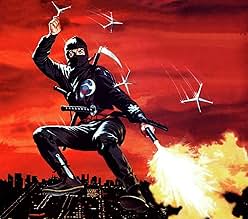

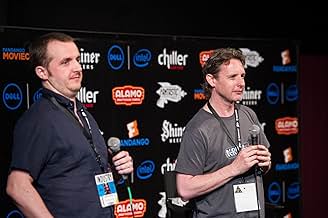
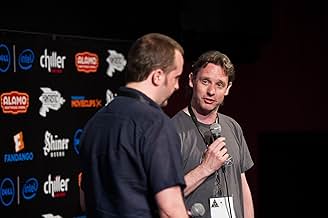
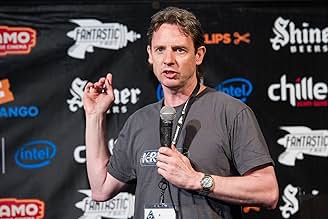

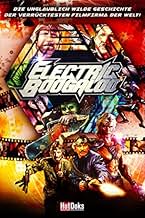
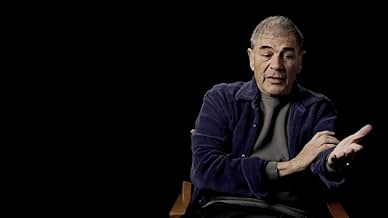






















![[REC] 4: Apocalypse](https://m.media-amazon.com/images/M/MV5BMzI1MWVjMGMtNDgwMS00ODU2LThkYjMtZjU0NDRjZTNhYzJhXkEyXkFqcGc@._V1_QL75_UY207_CR6)
